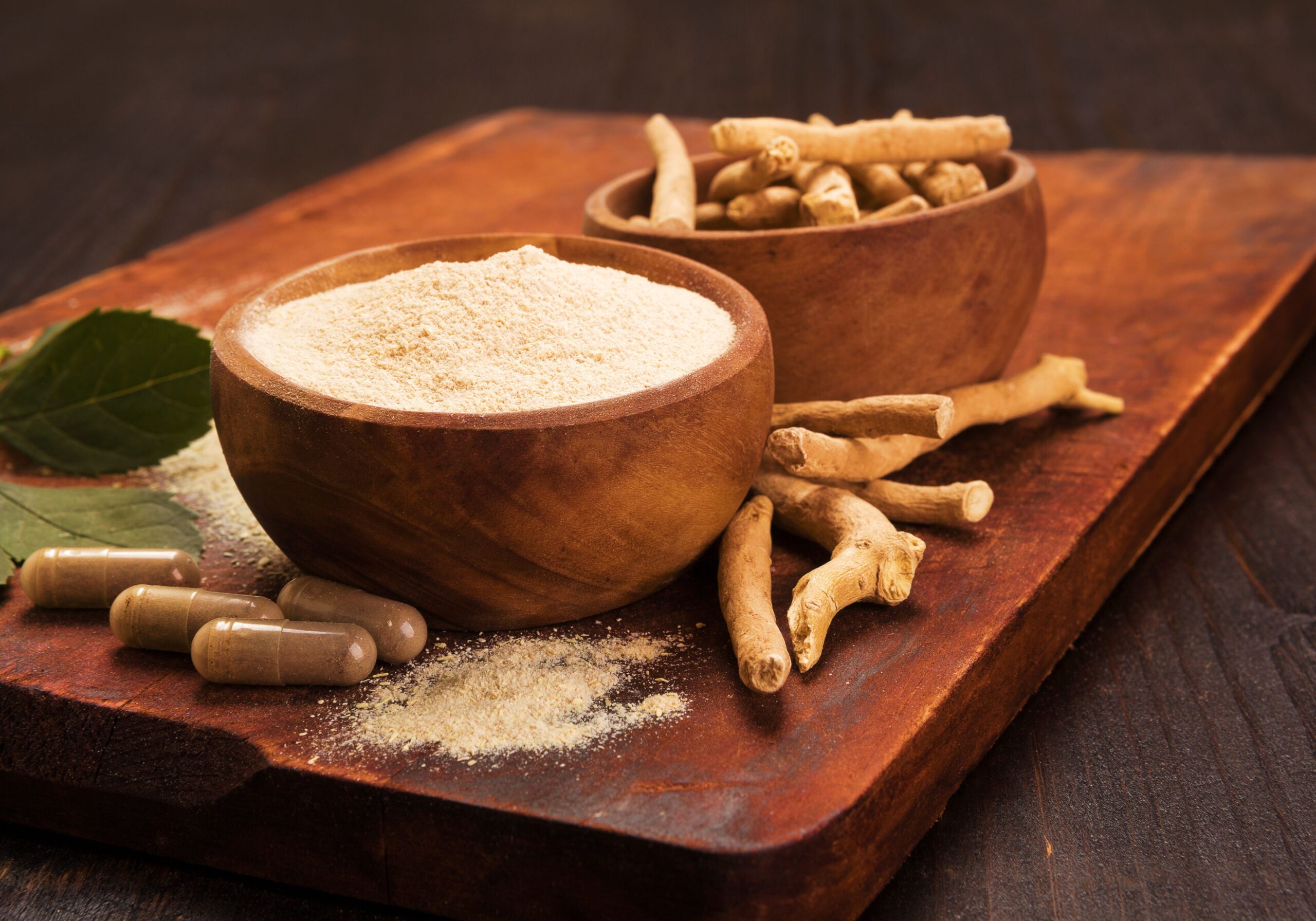The Proven Health Benefits and Side Effects of Ashwagandha

From reducing stress and anxiety to boosting cognitive function and managing blood sugar levels, Ashwagandha has a wide range of potential uses. But with great power comes great responsibility, and it’s important to understand the potential side effects and precautions associated with this powerful herb.
We are going to look into the Benefits and side effects of Ashwagandha. Whether you’re curious about incorporating Ashwagandha into your daily routine or simply want to expand your knowledge of natural remedies, this article will provide the insights you need to make informed decisions.
Historical Use of Ashwagandha
Ashwagandha, also known as Withania somnifera or Indian ginseng, has a rich history dating back thousands of years. It has been a staple in Ayurvedic medicine, one of the world’s oldest holistic healing systems. Ayurvedic practitioners have long recognized the potent medicinal properties of Ashwagandha and have used it to treat a wide range of conditions.
In ancient times, Ashwagandha was often referred to as “rasayana,” which means rejuvenator. It was believed to promote longevity, vitality, and overall well-being. The herb’s name is derived from the Sanskrit words “ashwa,” meaning horse, and “gandha,” meaning smell. This is because Ashwagandha is said to give the strength and vigor of a horse and has a distinct, earthy aroma.
While it has been used for centuries in traditional medicine, Ashwagandha has recently gained attention in the Western world. Its popularity has surged due to its adaptogenic properties, which help the body adapt to stress and promote balance. As a result, Ashwagandha has become a sought-after herb for those seeking natural remedies for various health concerns.

The Science Behind Ashwagandha’s Benefits
To understand the benefits of Ashwagandha, it’s important to explore the science behind its mechanisms of action. Ashwagandha contains several bioactive compounds, including alkaloids, flavonoids, and steroidal lactones called withanolides. These compounds contribute to its therapeutic effects on the body.
One of the key actions of Ashwagandha is its ability to modulate the stress response. It works by regulating the levels of cortisol, the primary stress hormone in the body. Studies have shown that Ashwagandha can reduce cortisol levels, thereby promoting a state of calm and relaxation. Additionally, Ashwagandha has been found to increase the activity of certain neurotransmitters, such as gamma-aminobutyric acid (GABA), which has a calming effect on the brain.
Ashwagandha also exhibits antioxidant properties, which can help protect cells from damage caused by free radicals. Free radicals are unstable molecules that can lead to oxidative stress and contribute to the development of chronic diseases. By neutralizing free radicals, Ashwagandha can help reduce inflammation and support overall health.
Furthermore, Ashwagandha has been found to have immunomodulatory effects, which can regulate the immune system. It has been shown to enhance the activity of natural killer cells, which are responsible for detecting and destroying harmful cells in the body. This immune-boosting action may contribute to Ashwagandha’s ability to support overall wellness.
Now lets look at the long awaited benefits and side effects of Ashwagandha.
Health Benefits of Ashwagandha
Ashwagandha offers a wide range of health benefits, making it a versatile herb for various purposes. Let’s explore some of its most notable benefits.
1. Ashwagandha For Stress and Anxiety
Stress and anxiety have become prevalent issues that can take a toll on our well-being. Ashwagandha has been traditionally used as an adaptogen, a natural substance that helps the body adapt to stressors.
Research has shown that Ashwagandha can significantly reduce symptoms of stress and anxiety. In a study involving individuals with chronic stress, those who took Ashwagandha experienced a significant reduction in cortisol levels and reported improved well-being compared to the control group. Another study found that Ashwagandha supplementation reduced anxiety levels in individuals with generalized anxiety disorder.
The calming effects of Ashwagandha can be attributed to its ability to regulate neurotransmitters like GABA. By promoting a state of relaxation, Ashwagandha may help reduce stress and anxiety, ultimately improving overall mental health.
2. Ashwagandha For Improving Sleep Quality
Getting adequate sleep is crucial for overall health and well-being. However, many people struggle with sleep disorders or have difficulty falling asleep. Ashwagandha may offer a natural solution for improving sleep quality.
Research suggests that Ashwagandha can enhance sleep by reducing cortisol levels and promoting relaxation. One study found that individuals who took Ashwagandha experienced improved sleep quality and reduced sleep onset latency, the time it takes to fall asleep. Another study in animals demonstrated that Ashwagandha extract increased the duration of non-rapid eye movement (NREM) sleep, the restorative phase of sleep.
By calming the mind and reducing stress, Ashwagandha may help individuals achieve a more restful and rejuvenating sleep, leading to improved overall health and vitality.
3. Ashwagandha For Boosting Cognitive Function
Cognitive function encompasses various mental processes, including memory, attention, and problem-solving skills. As we age, it’s natural for cognitive abilities to decline. However, Ashwagandha may offer support for brain health and cognitive function.
Studies have shown that Ashwagandha has neuroprotective properties, meaning it can help protect the brain from damage and degeneration. It has been found to promote the growth of nerve cells and enhance synaptic connections, which are essential for learning and memory.
In addition, Ashwagandha has been shown to improve cognitive performance in individuals with mild cognitive impairment. It may enhance attention, information processing speed, and executive function, vital for daily tasks and overall cognitive abilities.
By supporting brain health and cognitive function, Ashwagandha may help individuals maintain mental sharpness and improve overall cognitive performance.

4. Ashwagandha For Managing Diabetes
Diabetes is a chronic condition characterized by elevated blood sugar levels. It affects millions worldwide and can lead to complications if not properly managed. Ashwagandha may offer potential benefits for individuals with diabetes.
Studies have shown that Ashwagandha can help regulate blood sugar levels by increasing insulin sensitivity. Insulin is a hormone responsible for transporting glucose from the bloodstream into cells, which can be used for energy. Ashwagandha may help improve glucose metabolism and maintain stable blood sugar levels by enhancing insulin sensitivity.
Furthermore, Ashwagandha has been found to have antioxidant and anti-inflammatory effects, which can help reduce the risk of complications associated with diabetes, such as cardiovascular disease and nerve damage.
While Ashwagandha shows promise in managing diabetes, consulting with a healthcare professional before incorporating it into your treatment plan is essential. They can provide personalized guidance and monitor your progress to ensure optimal health outcomes.
5. Ashwagandha For Enhancing Athletic Performance
Athletes and fitness enthusiasts are constantly seeking ways to optimize their performance and recovery. Ashwagandha may offer benefits for individuals looking to enhance their athletic performance naturally.
Research suggests that Ashwagandha can improve strength and endurance. In a study involving healthy individuals, those who took Ashwagandha extract experienced greater improvements in strength, muscle mass, and testosterone levels compared to the placebo group.
Ashwagandha’s ability to reduce stress and support overall well-being may also contribute to its performance-enhancing effects. By promoting a state of balance and reducing oxidative stress, Ashwagandha can help athletes recover faster and perform at their best.
It’s important to note that while Ashwagandha is generally considered safe, individual responses may vary. It’s recommended to consult with a healthcare professional before starting any new supplement regimen, especially if you have any underlying health conditions or are taking medications.
Potential Side Effects Of Ashwagandha and Precautions
While Ashwagandha is generally well-tolerated, it’s important to be aware of possible side effects and take necessary precautions.
- Some individuals may experience mild gastrointestinal symptoms, such as upset stomach or diarrhea when taking Ashwagandha. These symptoms are usually temporary and resolve on their own. However, if you experience persistent or severe gastrointestinal distress, it’s advisable to discontinue use and consult with a healthcare professional.
- Ashwagandha may also have a sedative effect on some individuals, especially at higher doses. If you feel excessively drowsy or experience impaired coordination, avoiding activities that require mental alertness, such as driving or operating heavy machinery, is recommended.
- Additionally, Ashwagandha may interact with certain medications, including sedatives, immunosuppressants, and thyroid medications. If you’re taking any medications, it’s important to discuss them with your healthcare provider before starting Ashwagandha supplementation to avoid potential drug interactions.
How To Take Ashwagandha
Ashwagandha is available in various forms, including capsules, powders, and tinctures. The appropriate dosage may vary depending on the individual and the specific product used. It’s advisable to follow the instructions provided by the manufacturer or consult with a healthcare professional for personalized guidance.
When choosing an Ashwagandha supplement, look for standardized products to contain a specific percentage of withanolides, the active compounds in Ashwagandha. This ensures that you’re getting a consistent and potent dose of the herb.
It’s important to note that Ashwagandha is not recommended for pregnant or breastfeeding individuals, as its safety in these populations has not been extensively studied. If you’re considering Ashwagandha supplementation and fall into these categories, it’s best to consult your healthcare provider for personalized advice.
Choosing The Right Ashwagandha Supplement
The quality and efficacy of Ashwagandha supplements can vary greatly. To ensure you’re getting a high-quality product, consider the following factors:
- Quality and purity: Look for third-party supplements tested for quality and purity. This ensures the product is free from contaminants and meets stringent quality standards.
- Standardization: Opt for standardized supplements containing a specific percentage of withanolides, usually 2.5% to 10%. This ensures that you’re getting a consistent and potent dose of the active compounds.
- Formulation: Consider your preferences and lifestyle when choosing the formulation of Ashwagandha. Capsules offer convenience and precise dosing, while powders can be easily added to smoothies, beverages, or recipes.
- Manufacturer reputation: Choose reputable brands with a track record of producing high-quality supplements. Look for companies that prioritize transparency, quality control, and customer satisfaction.
By selecting a high-quality Ashwagandha supplement, you can ensure that you’re getting the maximum benefit from this powerful herb.

Ashwagandha Recipes Ideas
In addition to supplementation, Ashwagandha can be incorporated into various recipes and preparations. Here are a few ideas to help you enjoy the benefits of Ashwagandha in your daily life:
- Ashwagandha Golden Milk: Mix a teaspoon of Ashwagandha powder with warm milk, a pinch of turmeric, a dash of cinnamon, and a sweetener of your choice. Enjoy this soothing and nourishing drink before bed for a restful sleep.
- Ashwagandha Energy Balls: Combine Ashwagandha powder, dates, nuts, and your favorite superfood ingredients in a food processor. Roll the mixture into small balls and refrigerate for a delicious and energizing snack.
- Ashwagandha Smoothie: Blend Ashwagandha powder with your favorite fruits, leafy greens, and a liquid of choice, such as almond milk or coconut water. Customize your smoothie with additional superfood add-ins for a nutrient-packed meal.
Get creative and experiment with different recipes to find enjoyable ways to incorporate Ashwagandha into your daily routine.
Frequently Asked Questions About Ashwagandha
- Is Ashwagandha safe for long-term use? Ashwagandha is generally considered safe for long-term use when taken at recommended doses. However, consulting with a healthcare professional for personalized guidance is advisable, especially if you have any underlying health conditions or are taking medications.
- Can Ashwagandha be taken with other supplements? Ashwagandha can be safely taken with other supplements. However, consulting with a healthcare professional is recommended to ensure there are no potential interactions with specific supplements or medications you may be taking.
- Can Ashwagandha be used for children? Ashwagandha is not recommended for children, as its safety and efficacy in this population have not been extensively studied. It’s best to consult a healthcare professional for guidance on natural remedies suitable for children.
- Can Ashwagandha help with weight loss? While Ashwagandha has been shown to have potential benefits for overall health, there is limited research on its specific effects on weight loss. Maintaining a healthy diet and lifestyle is important for sustainable weight management.
- Can Ashwagandha help with fertility? Ashwagandha has been traditionally used to support reproductive health and fertility. Some studies have shown that Ashwagandha can improve sperm quality and male fertility. However, more research is needed to fully understand its effects on fertility in both men and women.
Bottom Line
Ashwagandha is a powerful herb with a rich history and a wide range of potential uses. Its bioactive compounds, including withanolides, contribute to its therapeutic effects on the body. Ashwagandha offers numerous health benefits, from reducing stress and anxiety to improving sleep quality, enhancing cognitive function, managing blood sugar levels, and even boosting athletic performance.
However, it’s important to approach Ashwagandha cautiously and be aware of potential side effects and precautions. Some individuals may experience mild gastrointestinal symptoms or sedative effects, especially at higher doses. It’s crucial to consult with a healthcare professional before incorporating Ashwagandha into your routine, particularly if you have underlying health conditions or are taking medications.






